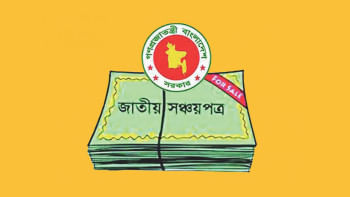More farmers to get seedlings in winter
Bangladesh Agricultural Research Institute (Bari) plans to widen farming of its first genetically modified (GM) crop -- Bt brinjal -- by distributing its saplings among 100 more growers in the coming winter, said Bari Director General Dr Md Rafiqul Islam Mondal at a press briefing in the city yesterday.
The briefing was arranged mainly to dispel worries, voiced by some green groups, that the GM crop may not be environment friendly. Quite the contrary, the crop has been introduced to fight fruit and shoot borer (FSB), the deadliest pest for brinjal, thanks to insertion of a bacterial gene into the plant, explained Dr Mondol at the briefing at Bangladesh Agricultural Research Council (Barc).
Bt Brinjal was first introduced to a select group of 20 farmers in January for the first time in Bangladesh as a remedy to FSB attacks that can damage the crop by up to 70 percent.
The Bari press briefing came a week after Bangladesh Environmental Lawyers Association (Bela) had demanded a stop to farming and marketing of the GM crop at another briefing at Dhaka Reporters' Unity on August 31.
Bela activists had stated that enough research has not been done to assess the impact of the crop on the environment and human health. They had also claimed that most farmers who had cultivated the crop did not get high yield as promised by the agriculture ministry and Bari.
Allaying their fears, the Bari DG at yesterday's briefing said the existing farming practice is rather more environment unfriendly.
"To save brinjal crop from FSB, farmers tend to spray an overdose (up to 160 times a season) of chemical pesticides, exposing thereby the producers and consumers to health risks," said Dr Mondal.
Interestingly, like Bela, Bari also invited the first batch of Bt brinjal farmers to its briefing. While seven of them turned up at Bela's, some 16 showed up at Bari's.
There was a mixed bag of reactions from the participating farmers. While some expressed complete satisfaction with the GM crop, some complained of poor yields as the plants died untimely.
The Bari DG acknowledged that distribution of saplings among the 20 farmers was delayed and there were problems of bacterial wilt too. He, however, noted that this time the distribution of the saplings will be done in time.
Dr Mondal alleged that some of the farmers could not take proper care of their GM crop fields because of constant threats from different anti-GM groups. Although some of the farmers echoed the DG in this connection, none of them agreed to identify any individual or group who had threatened them.
Mansur Ahmed Sarkar who hails from Gazipur is one of the 20 farmers who had utytrycultivated the GM crop.
"Some people used to visit my field and warned me not to feed the crop to my children. They also warned me against selling it in the market."
Haidul Islam, another grower of the crop, had a bitter experience as he did not get a good yield due to untimely wilting of the plants.

 For all latest news, follow The Daily Star's Google News channel.
For all latest news, follow The Daily Star's Google News channel. 



Comments